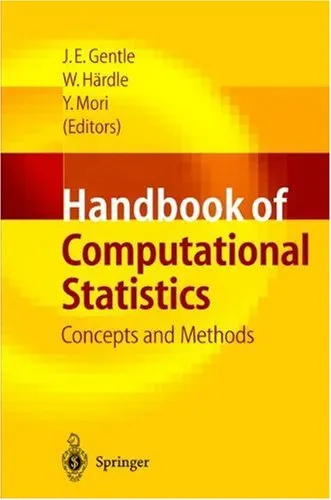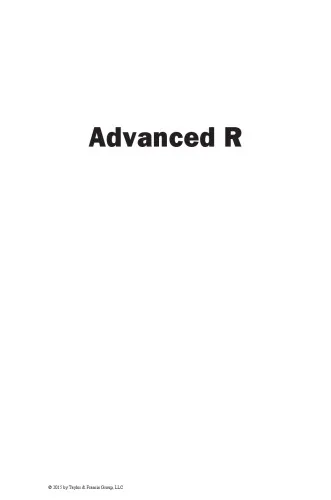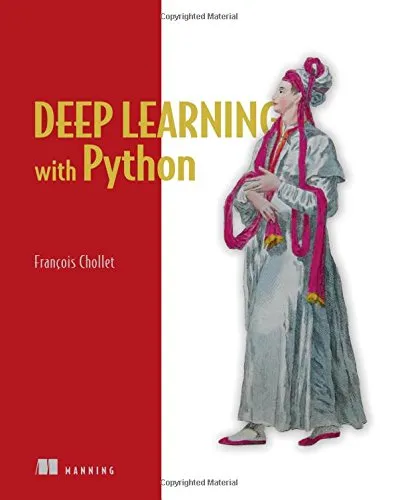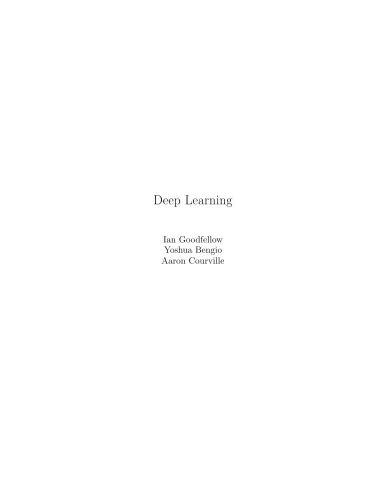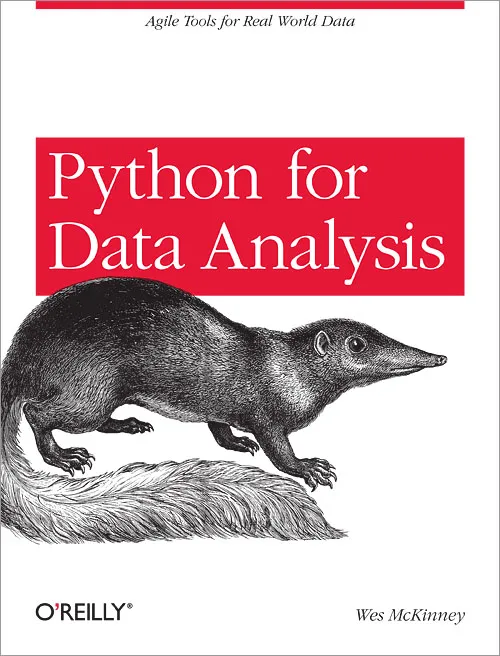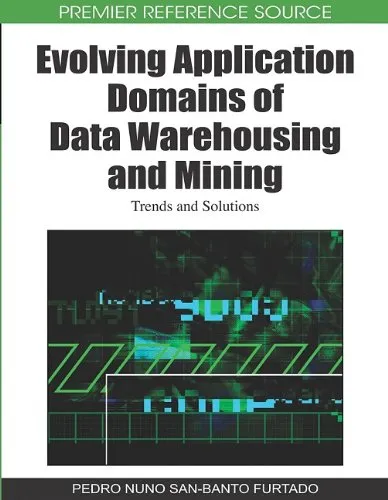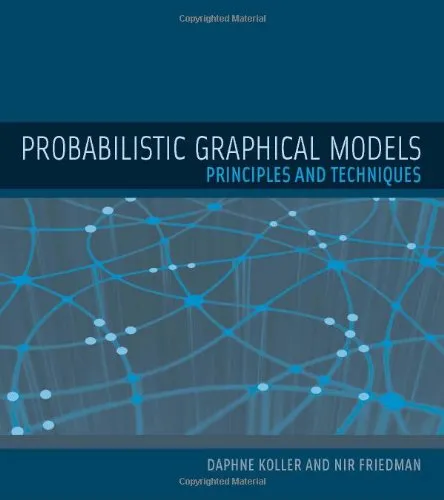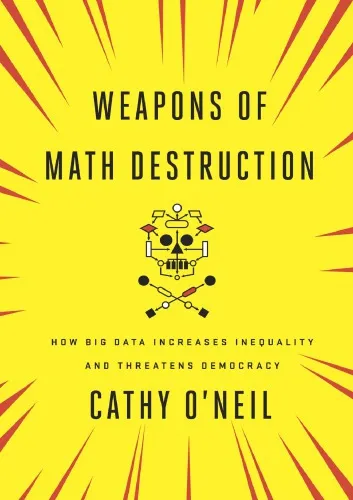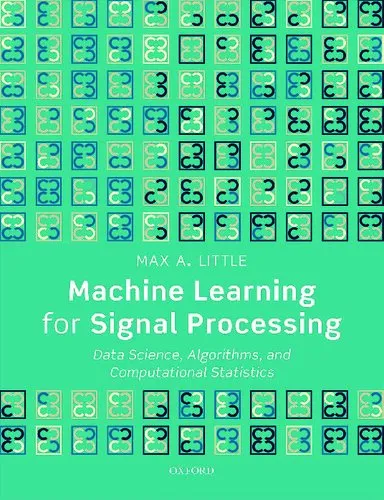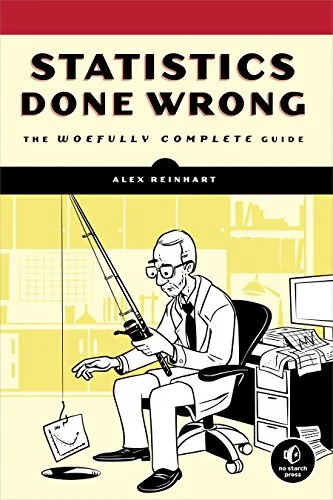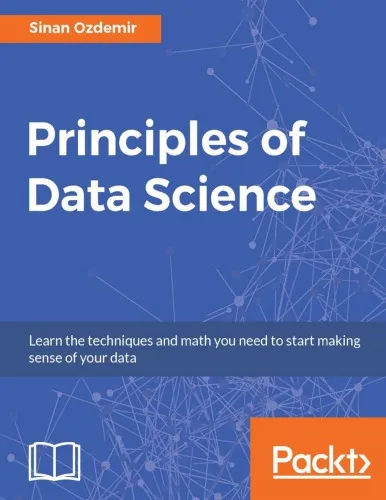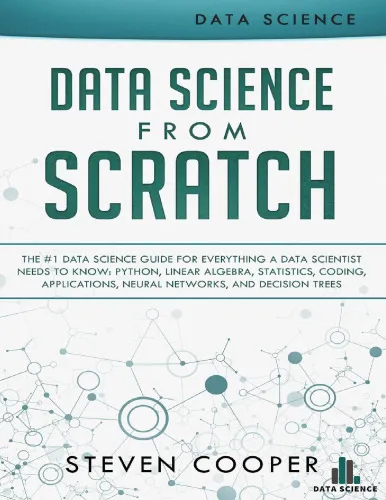Handbook of computational statistics: Concepts and methods
4.0
بر اساس نظر کاربران

شما میتونید سوالاتتون در باره کتاب رو از هوش مصنوعیش بعد از ورود بپرسید
هر دانلود یا پرسش از هوش مصنوعی 2 امتیاز لازم دارد، برای بدست آوردن امتیاز رایگان، به صفحه ی راهنمای امتیازات سر بزنید و یک سری کار ارزشمند انجام بدینکتاب های مرتبط:
معرفی کتاب
کتاب Handbook of Computational Statistics: Concepts and Methods یکی از جامعترین و کاربردیترین منابع در زمینه آمار محاسباتی است که به قلم J.E. Gentle، Wolfgang Hsrdle و Yuichi Mori نوشته شده است. این کتاب به طور خاص برای پژوهشگران، دانشجویان و تحلیلگران داده طراحی شده است که به دنبال یادگیری عمیقتر در مورد مفاهیم و روشهای پیشرفته آماری هستند.
این کتاب نه تنها اصول اساسی آمار بلکه روشها و الگوریتمهای موجود در Computational Statistics را با جزئیات بیان میکند. همچنین نحوه کاربرد آنان در مسائل دنیای واقعی با استفاده از ابزارهای پیشرفته مانند R، Python و سایر نرمافزارهای محاسباتی توصیف میشود. مطالب کتاب از مثالهای عملی گرفته تا مفاهیم تئوری پیشرفته را پوشش میدهد.
چکیدهای از کتاب
کتاب شامل فصلهایی دقیق و پرمحتوا است که به بررسی روشهای آماری، روشهای محاسباتی، بازنمایی دادهها و تفسیر نتایج میپردازد. مخاطب میتواند با استفاده از این کتاب به نحوه استفاده از ابزارها و الگوریتمهای پیشرفته آشنا شده و از آنها در پژوهشهای خود بهره برد.
مطالب کتاب به سه بخش اصلی تقسیم شده است:
- بخش اول: مفاهیم پایه آماری و مبانی محاسبات
- بخش دوم: الگوریتمهای پیشرفته و کاربردهای عملی
- بخش سوم: مسائل جدید در حوزه Computational Statistics و روندهای نوظهور
این ساختار به خواننده اجازه میدهد که به تدریج دانش خود را گسترش دهد و تکنیکهای پیشرفتهتری را فرا گیرد، در حالی که پیوستگی منطقی فصول حفظ میشود.
نکات کلیدی کتاب
- اصول پایه: کتاب اهمیت اصول اساسی، از جمله probability theory و مدلهای آماری را به خوبی توضیح میدهد.
- الگوریتمهای محاسباتی: آموزش دقیق الگوریتمهایی مانند Monte Carlo methods، bootstrap methods و machine learning algorithms.
- تحلیل دادههای واقعی: ترکیب تئوری با کاربردهای عملی در دادههای بزرگ و پیچیده.
- ابزارهای نرمافزاری: معرفی و استفاده از ابزارهای کامپیوتری همچون R و Python برای پیادهسازی مفاهیم.
نقلقولهای معروف از کتاب
"Statistical computing is not just about crunching numbers, but about comprehending the data in a meaningful context."
"The combination of computational techniques with statistical knowledge creates a powerful tool for modern data science."
چرا این کتاب اهمیت دارد
در دنیای امروز که حجم دادهها به سرعت در حال افزایش است، اهمیت آمار محاسباتی در تحلیل دادهها و تصمیمگیری بیشتر از همیشه احساس میشود. این کتاب به طور خاص برای پر کردن خلاهای موجود در دانش مربوط به الگوریتمهای پیشرفته و روشهای دادهمحور نوشته شده است.
علاوه بر این، کتاب به گونهای نگارش شده که هم برای مبتدیان و هم برای کارشناسان مناسب باشد. مثالهای عملی و کدهای ارائهشده در کتاب به خوانندگان کمک میکند تا مفاهیم پیچیده را درک و آنها را در پروژههای واقعی به کار بگیرند.
اگر در حوزه Data Science و تحلیل دادهها فعالیت میکنید، این کتاب نه تنها یک منبع آموزشی بلکه یک مرجع ضروری برای رشد حرفهای شما خواهد بود.
Introduction to the Handbook of Computational Statistics: Concepts and Methods
The "Handbook of Computational Statistics: Concepts and Methods" is a comprehensive resource that delves into the theoretical foundations, computational techniques, and practical applications of computational statistics. Written by renowned experts J.E. Gentle, Wolfgang Härdle, and Yuichi Mori, this handbook is a must-read for statisticians, data scientists, and anyone working at the intersection of mathematics, statistics, and computer science.
The book equips readers with a deep understanding of computational procedures, offering a detailed overview of both established and modern techniques across multiple domains. It serves as an authoritative reference for both students and professionals who are eager to deepen their knowledge and stay abreast of the latest computational tools and methodologies.
Summary of the Book
The "Handbook of Computational Statistics" provides a systematic exploration of key topics to enable readers to effectively tackle real-world statistical problems using computational methods.
The book opens by laying a solid groundwork, discussing fundamental concepts in statistics, mathematics, and programming. Starting with essential algorithms, it then progresses to advanced topics such as Monte Carlo methods, resampling techniques, and machine learning algorithms. Throughout, it integrates case studies and worked examples to bridge the gap between theoretical concepts and their real-world applications.
Some fundamental areas covered include:
- Bayesian computation and probabilistic modeling techniques
- Optimization algorithms for statistical modeling
- Distributed computing and parallel processing
- Simulation-based methodologies, including bootstrap and Markov Chain Monte Carlo (MCMC)
- Classification, clustering, and supervised learning frameworks
Each chapter is written by subject-matter authorities, ensuring a balanced perspective combining theoretical rigor and practical insights. The varied nature of topics makes this book a versatile resource, suitable for educators, researchers, and practitioners alike.
Key Takeaways
The following are the key lessons and concepts readers can expect to gain from this handbook:
- Integrated Framework: Develop a holistic view of computational statistics and its role in modern data analysis.
- Algorithmic Foundations: Gain expertise in fundamental and advanced algorithms that underpin statistical computation.
- Hands-On Applications: Learn how to implement statistical methods practically, making use of real-world data sets and examples.
- Staying Current: Stay informed about cutting-edge computational approaches, including developments in artificial intelligence and big data analytics.
- Theoretical Depth: Deepen your understanding of probability theory, statistical theory, and their computational aspects, which are fundamental to creating new algorithms.
By mastering these takeaways, readers can fortify their problem-solving skills and build competence in applying computational statistics to tackle modern challenges in science, business, and engineering.
Famous Quotes from the Book
Here are some thought-provoking quotes that reflect the essence of the book:
"Statistics is no longer confined to observation and theory; it is now a computational art and science."
"In computational statistics, the combination of algorithmic precision and data insight creates the foundation for innovation."
"The future of statistics lies at the intersection of computation, data, and intelligent decision-making."
"The iterative nature of computation allows us to refine hypotheses, simulate systems, and extract actionable insights from complexity."
Why This Book Matters
The "Handbook of Computational Statistics: Concepts and Methods" is more than just a guide; it is a cornerstone text for understanding the interplay between statistics and computation in the data-driven world.
In an era where data is a critical asset, the ability to draw meaningful inferences from large, complex data sets is a skill that transcends industry boundaries. This book equips readers with a robust toolkit to manage, analyze, and model data in a computationally efficient and statistically sound manner. Beyond theory, it introduces readers to scalable methods that can handle big data challenges and rapidly advancing technological landscapes.
Moreover, by bridging classical statistical principles with modern methodologies, the handbook satisfies the needs of professionals working in academic, research, corporate, and government settings. Its emphasis on computational implementation makes it stand out as a highly practical resource for applied statisticians and data analysts.
Finally, this book matters because it prepares readers to face future challenges head-on, fostering a deep understanding of how statistical and computational thinking can contribute to solving the world’s most pressing problems.
دانلود رایگان مستقیم
شما میتونید سوالاتتون در باره کتاب رو از هوش مصنوعیش بعد از ورود بپرسید
دسترسی به کتابها از طریق پلتفرمهای قانونی و کتابخانههای عمومی نه تنها از حقوق نویسندگان و ناشران حمایت میکند، بلکه به پایداری فرهنگ کتابخوانی نیز کمک میرساند. پیش از دانلود، لحظهای به بررسی این گزینهها فکر کنید.
این کتاب رو در پلتفرم های دیگه ببینید
WorldCat به شما کمک میکنه تا کتاب ها رو در کتابخانه های سراسر دنیا پیدا کنید
امتیازها، نظرات تخصصی و صحبت ها درباره کتاب را در Goodreads ببینید
کتابهای کمیاب یا دست دوم را در AbeBooks پیدا کنید و بخرید
1365
بازدید4.0
امتیاز0
نظر98%
رضایتنظرات:
4.0
بر اساس 0 نظر کاربران
Questions & Answers
Ask questions about this book or help others by answering
No questions yet. Be the first to ask!
